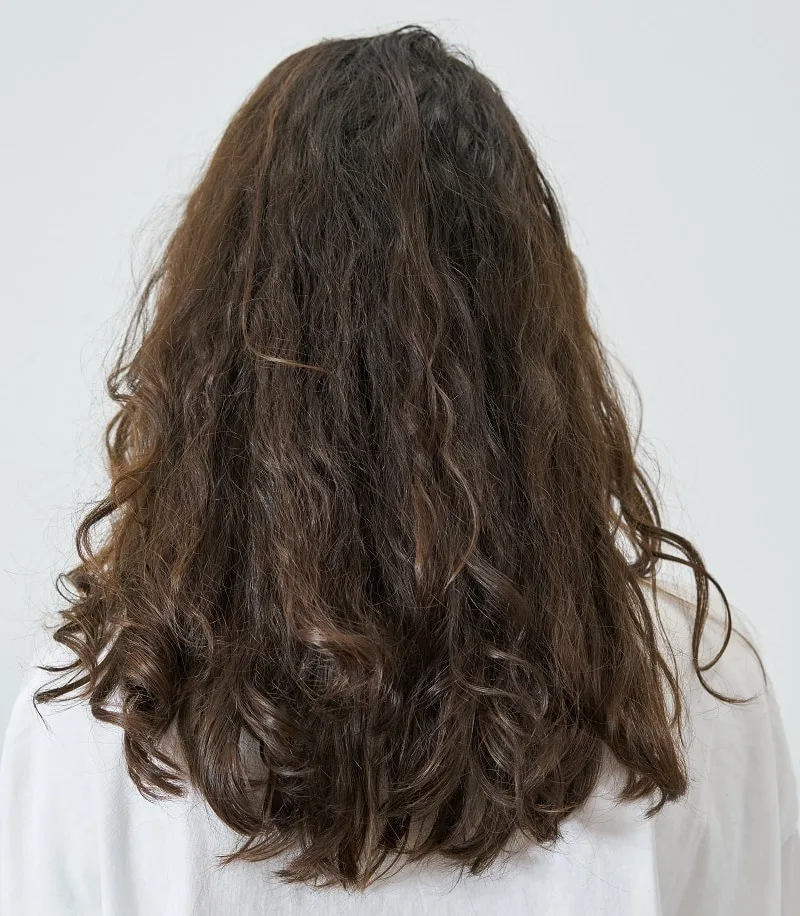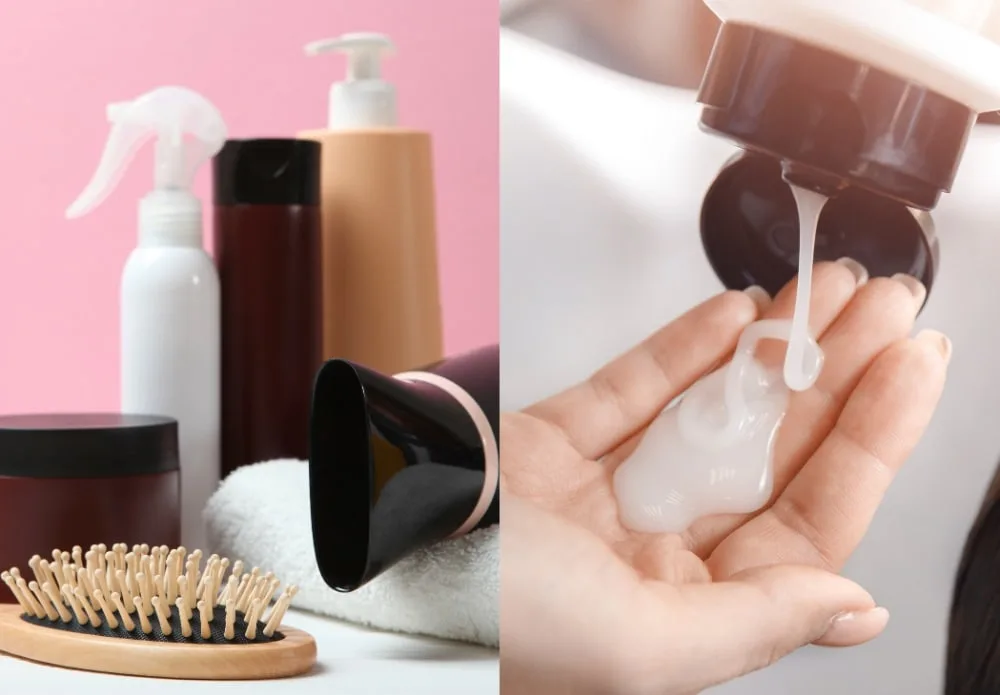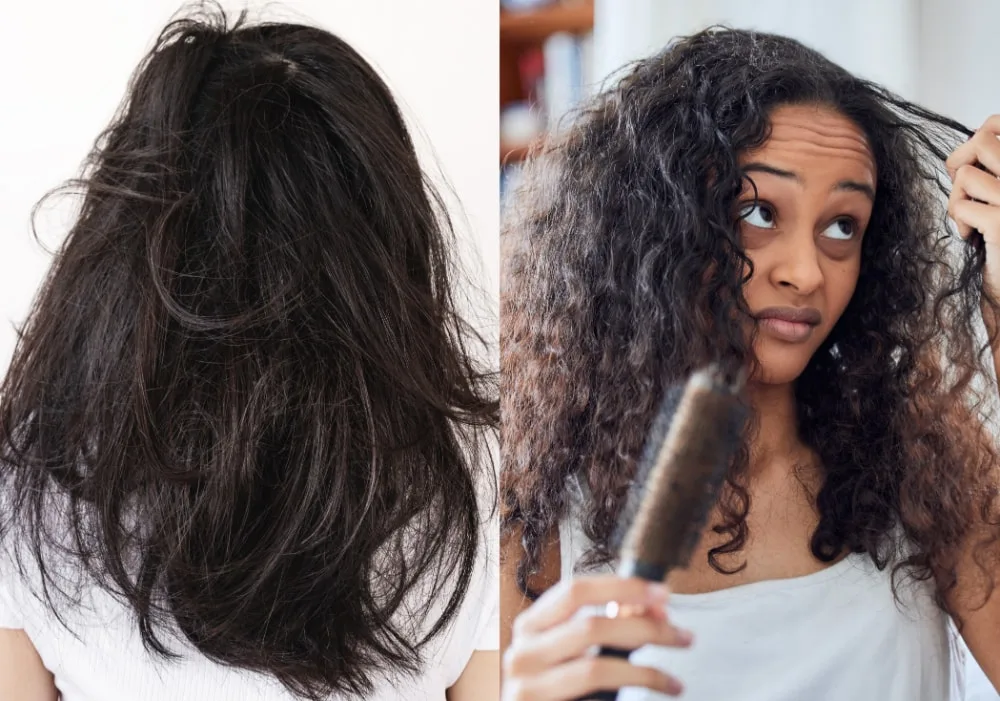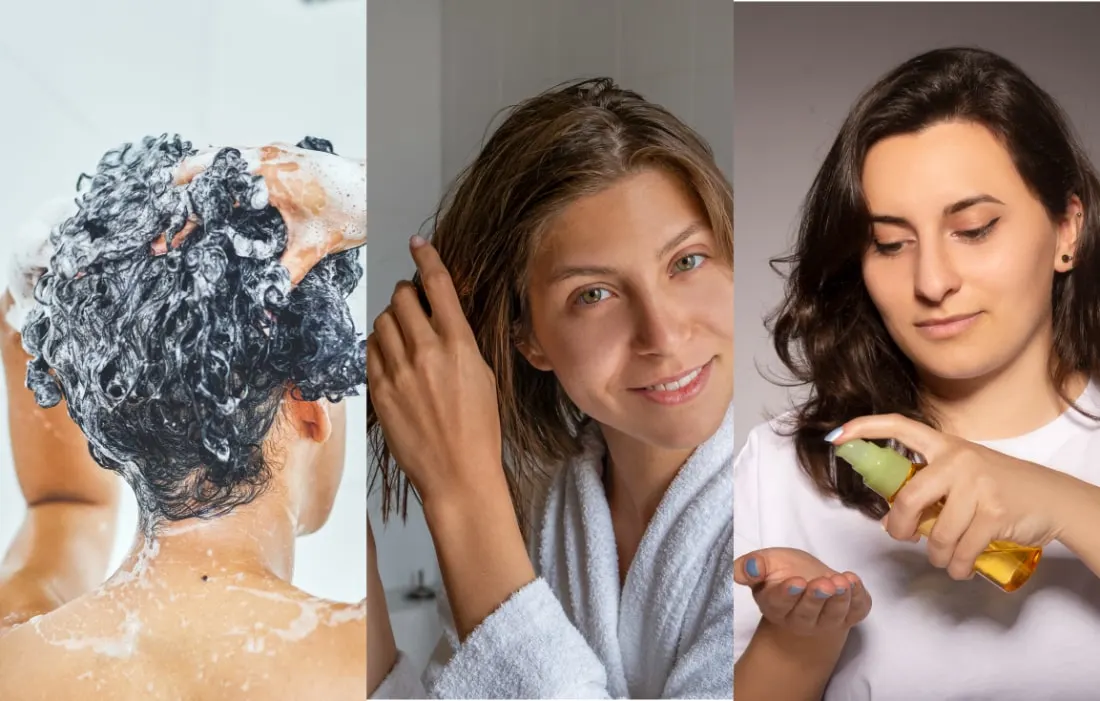Keeping your skin and body hydrated is essential for your appearance and health – and your hair is no different! However, if you use too many products, you may experience moisture overload.
It happens when there is too much moisture in your hair and not enough protein. When hair has too much of it, it becomes frizzy or falls flat, which is a major styling faux pas.
Thankfully, moisture overload has several remedies. Keep reading to learn the signs and how to fix over-moisturized hair.
What Is Over-Moisturized Hair?

Over-moisturized hair is when the balance between protein and moisture is off in your hair. Your hair needs a proper balance of these two to maintain strong and healthy hair.
Healthy hair is strong with no breakage, bounces back when pulled, and can hold volume and style. Too much protein in your hair can cause your hair to be stiff, dry, and brittle.
Too much moisture can cause your hair to feel mushy, fall flat, and frizzy. Your hair needs a delicate balance of moisture and protein to maintain a healthy texture and weight.
Moisture overload is a common hair problem that can cause damage over time. Understanding what causes over-moisturizing, what to look for, and how to fix it can help you achieve strong and healthy hair.
What Causes Moisture Overload?

There are 2 key reasons your hair may have moisture overload. Below are two common culprits of over-saturated hair.
#1. You Use Too Many Products.
One cause of too much moisture in your hair is from using too many products. The continued use of products can leave a build-up on your hair, resulting in a high moisture level on the hair cuticles and weighing it down.
If you use several hydrating products daily, you can overwhelm your hair and essentially have too much of a good thing.
Try to use one or two products, like a leave-in conditioner and heat protectant, and only use more every once in a while.
#2. Your Conditioner is Too Heavy.
Consistently using heavy conditioners or deep conditioning your hair too often can also cause moisture overload.
Leaving the conditioners on for long periods can penetrate the hair strand and deposit too much moisture for the hair. When choosing a conditioner, examine your hair type.
If you have coarse, thick, or curly hair, you can use a medium to heavy conditioner – but thin or fragile hair should stick to lightweight hydration. Only leave your conditioner on your hair for 3 to 5 minutes.
Signs of Over-Moisturized Hair

There are a few clear signs that you have too much moisture in your hair. As with most hair damage, it doesn’t occur overnight, so you may not notice it until you try to style your hair without success.
However, you can monitor your hair for these signs of over-moisturized hair.
Dry, Brittle, or Heavy Hair
One clear sign of moisture overload in hair is the way your hair feels. Your hair may feel mushy or overly soft to the touch. It can also feel weighed down, like it has too much product.
If this is the way your hair feels, even after washing it, it may be time to take steps to correct over-moisturizing.
Your Hair Doesn’t Hold Style
Pull a strand of hair straight and release it. If the hair bounces back and snaps to its original shape, your hair is not perfectly moisturized.
However, if you pull it down and it does not bounce back, your hair may be over moisturized.
If you have thin or straight hair, this test can be tricky – but even straight strands should go back in place after you pull them.
Unmanageable Curls
You may have over-conditioned strands if your hair feels dry, frizzy, and unmanageable. This effect can also mean a loss of curl pattern or definition for curly hair.
Curly hair often experiences over moisturizing due to the thick, creamy consistency of curly hair products. Your curls may feel weighed down, flat, and have less shine than usual.
What Happens if You’re in Moisture Overload?
Several things can happen when you over-moisturize your hair. As discussed above, your hair may lay flat or seem dull when moisture in the hair is too much.
The hair strands are weighed down by moisture and do not have the volume they should. The damage from hair moisture overload can mean weaker hair strands.
When the hair is brittle, it is more prone to breakage and split ends. The breakage and split ends are easy to spot as extra frizz.
How to Fix Over-Moisturized Hair

There are a few things you can do to fix moisture overload in hair. Below is a step-by-step guide for getting your tresses back to their bouncy, healthy state.
Step 1: Clarify Your Hair
The first step in correcting this issue is to do a deep cleanse or clarify your hair. Many shampoos and hair products function to give your hair a deep clean and remove any build-up or unwanted residue.
To use a clarifying shampoo, wash your hair as you customarily would (although you may want to rinse and repeat up to 3 times).
Other options are an apple cider vinegar rinse, which cleanses the scalp, and a charcoal-infused shampoo that detoxes strands.
Step 2: Keep it Conditioned
If you want to avoid over-moisturized hair in the future, one thing you can do is to switch to a lighter conditioner or condition every other day instead of every day.
You can also use a light conditioner and a mask once a week.
Apply the conditioner to the ends of your hair first, then apply it to the middle of your hair and the root. Let it sit for 3 minutes, and wash it out thoroughly.
Step 3: Aftercare & Products
After you shower, try to avoid sleeping with your hair wet overnight. Instead, apply a leave-in conditioner and dry it before bed to avoid over-saturating your strands.
You may also want to try including protein-rich products in your hair care routine that can help balance protein and moisture levels in your hair.
If your hair is highly porous, apply coconut, olive, or avocado oil before washing it to keep it from swelling (and causing over-moisturization).
Moisture overload is when your hair has an imbalance of moisture and protein. Over-moisturizing can cause your hair to feel overly soft or mushy, frizzy, and lacking volume.
Fortunately, a few changes such as using a clarifying shampoo, taking careful steps to handle your wet hair, and adding protein-rich products, can help fix your over-moisturized hair.
Frequently Asked Questions
There is a lot of information about hair care, and recommendations can change from person to person. Knowing what your hair needs and how to prevent things like over-moisturizing can be challenging.
Below you’ll find answers to some frequently asked questions about hair moisture overload.
Yes, you can over-moisturize your hair. Overload happens when protein and moisture levels in your hair are not balanced. This imbalance can result from over-conditioning, leaving hair wet for extended periods, or using too much product.
Moisture overload can cause your hair to be frizzy. Too much moisture in your hair can damage the hair cuticle or strand and cause it to frizz through breakage and split ends.
Over-moisturizing your hair can cause damage to your hair. The damage from overload in your hair can cause split ends and breakage, leading to thinner hair.
